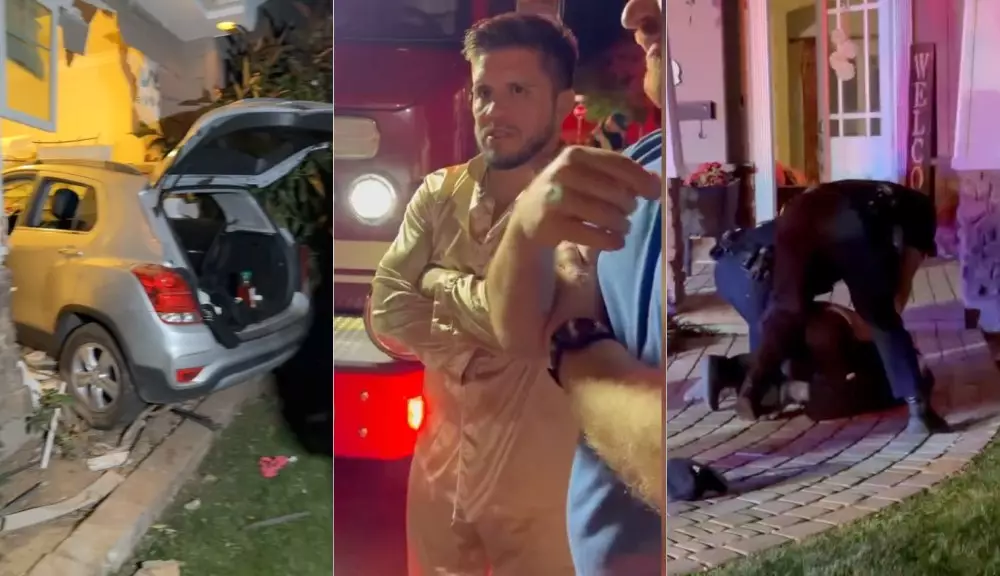What began as an uneventful evening for former UFC champion Henry Cejudo rapidly morphed into a harrowing scene of chaos. On a typical night outside his Phoenix residence, Cejudo found himself embroiled in a real-life drama that would impress even the most skilled choreographer of fight scenes. While engaging in casual conversation with his producer, Dylan Rush, a vehicle recklessly barreled down the street at an alarming speed—estimated by Cejudo to be between 80 and 100 mph—and crashed violently into a neighbor’s home. The suddenness of the incident not only startled those present but served as a stark reminder of how quickly life can take a turn for the worse.
A Call to Action
In the face of imminent danger, Cejudo’s instincts kicked in. When the driver attempted to escape, other occupants of the vehicle began following suit, making their way toward safety. However, Cejudo, demonstrating courage and decisiveness, stepped into action. Alongside the homeowner, he took it upon himself to prevent those responsible from slipping away. Cejudo’s commentary on the scene powerfully encapsulates the danger that had unfolded: “If someone was standing in there, they would be dead.” This phrase strikes a chilling note, emphasizing the narrow margin between disaster and survival.
While holding one suspect, Cejudo described a situation that escalated further. Being a martial artist, he employed his skills not to engage in aggression but to restrain—a fascinating contrast. His pursuit of accountability resonates deeply, showcasing a nature bent not just on physical prowess but moral responsibility. As he recounted the confrontation, vivid imagery of him “lifting him, dropping him, slapped him around a little bit” takes center stage. What some may view as an act of violence is better understood as a calculated response in a moment of crisis.
The Broader Context of Community Safety
One cannot overlook the broader implications of this encounter, especially considering a block party had just taken place earlier that very day. It begs the question of community safety and the risks that individuals, especially families with children, face in their own neighborhoods. Cejudo’s reflections on the event underscore the precarious balance between everyday life and unforeseen hazards. “If it was a couple hours earlier, someone would be seriously injured,” he lamented, a sober reminder of the fragile nature of human existence when juxtaposed against reckless behavior.
In times like these, figures such as Cejudo represent more than athletic valor; they symbolize the need for proactive engagement in community concerns. His intervention illustrates the importance of standing up against reckless behavior, suggesting that, whether in the Octagon or in everyday life, taking charge in critical moments can save lives. The incident not only spotlights an alarming lack of responsibility displayed by the driver but also highlights the heroism that can emerge when ordinary citizens choose to act. This narrative reinforces that within each individual lies the potential to catalyze significant change, making neighborhoods safer for everyone.

